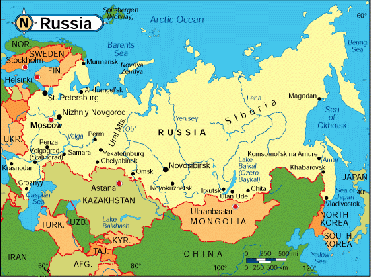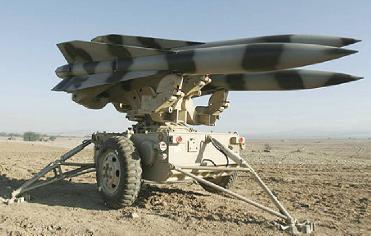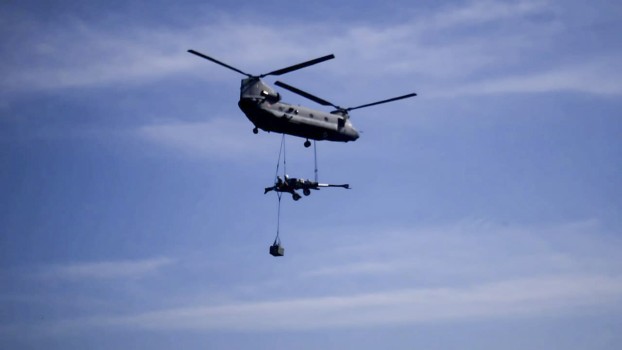
Alexander Fomin
One of the priorities in the Russian Federation�s foreign policy is the military-technical cooperation with foreign countries. Such cooperation creates favorable conditions for building partnerships with other countries on bilateral and multi-lateral bases.
Also, this insures the national security and helps to develop and equip the national armed forces. In Russia, Rosoboronexport federal unitary enterprise is a united agency for export and import of defense products. It is fully controlled by the state.
In all, 24 organizations act as defense traders on the foreign market. Those traders, along with Rosoboronexport and Rostekhnologii State Corporation, are entitled by the Russian Federation President to supplying spare parts, assemblies, subsystems, instruments, components, special purpose, training and support equipment, and technical documentation for the previously supplied military hardware and for such purposes as certification, standardization, service life extension, repair, modernization, recycling and training of foreign specialists.
The Russian companies are prepared to offer the latest types of weapons to foreign customers. Many products of the Russian defense developers are leaders on the arms markets, for example, S-300PMU2 air defense missile system, Pantsir-S1 air defense gun/missile system, Su-35 and MiG-35 fighters and Yak-130 operational trainer.
The Russian Federal Service for Military-Technical Cooperation supervises and controls the defense cooperation with foreign countries. It is involved in mapping out the national policy in defense cooperation, offers relevant proposals to the country�s leadership, and oversees the national policy in and supports the country�s defense cooperation with international defense business. In addition, the Service develops solutions to improving the defense cooperation, analyzes the trends on the world arms market, prepares drafts of international agreements for defense cooperation and submits, as per established procedure, proposals for their conclusion and implementation. Also, it coordinates and controls the work of the domestic operators on the foreign market.
The state�s methods and means of control of the defense cooperation are fully in line with the principle of the state monopoly on the defense business. They are based on licensing, development and manufacture of defense products, establishment of the procedure for export and import, and sale and purchase of defense products. They also include the issue of permits for defense business and its monitoring in legal and organizational aspects. The aim of control of foreign trade in defense products is to insure the national security and defense and economic capability. Also, this includes the protection of the domestic market, the fulfillment of international obligations to reduce, liquidate and control the sales of conventional weapons and to prevent the proliferation of weapons of mass destruction. The state�s growing role in the control of the defense business is determined by the necessity to promote Russian defense products to foreign markets in a tough competition and by the increasing importance of export control in international relations
The state�s control of defense exports is becoming of late ever more imperative in the light of war on the international terrorism. Russia�s active involvement in international export control enables it to directly shape the international code of conduct on the world arms market, and to promote its interests as a major producer and exporter of weapons.
At present, Russia cooperates in defense with more than eighty countries. Our main partners are China, India, Vietnam, Greece, Algeria, the UAE, Venezuela, Malaysia and others. Also, the countries of Africa and Latin America wish to acquire Russian weapons.
The defense cooperation has its specifics in each region. For instance, in dealing with the West European countries (the UK, France, Germany and Italy that are themselves major exporters of military hardware) Russia has to resolve such an important problem as how to find mutually acceptable terms of cooperation in defense. Even though each of those countries is a tough competitor in the supply of arms and military equipment to the world market, the Russian defense companies can, nonetheless, carry out joint research and development in some defense technologies and cooperate under certain projects. For example, now in progress are the talks with the French companies Thales and Sagem concerning the creation of joint ventures for production in Russia of co-developed assemblies, subsystems and components for their subsequent supply to France and third countries.
Today, Russian defense companies cooperate under aviation programs with such Italian and French companies as EADS, Thales, Sagem and Snecma (Safran group), Finmeccanica and others.
In addition to this, work continues on the building of legal regulatory basis for cooperation with West-European countries in defense matters.
For fulfilling intergovernmental agreements for defense cooperation with a number of West-European countries (Italy, Greece, France, Germany), committees have been formed for military-technical cooperation. These define the prospective trends in the cooperation and elaborate means of its development. Should a problem arise, they seek solutions to solving it. Thanks to this work, now underway is a preparation of joint projects for cooperation of our countries� defense companies both in own interests and in the interests of third countries.
In defense cooperation with the European countries, the following areas hold promise:
- continued building of the legal regulatory basis for defense cooperation;
- joint research and development for the creation of modern types of arms and military equipment;
- co-production and modernization of arms and military equipment for third countries;
- modernization of Russian arms and military equipment, including in compliance with NATO standards, for increasing their operational efficiency and extending the service life.
- Life proves the correctness of the chosen pattern of defense cooperation between Russia and foreign countries.
Over the last years Russia�s system of defense cooperation has passed the test of time. It has considerably expanded the area of its activities, duly contributing to the creation of essentially new types of defense products. It has fostered Russia�s defense capability and international security.
(First Deputy Director of Russian Federal Service for Military-Technical Cooperation)
 Next Article
Next Article













The Indian Air Force, in its flight trials evaluation report submitted before the Defence Ministry l..
view articleAn insight into the Medium Multi-Role Combat Aircraft competition...
view articleSky enthusiasts can now spot the International Space Station (ISS) commanded by Indian-American astr..
view article